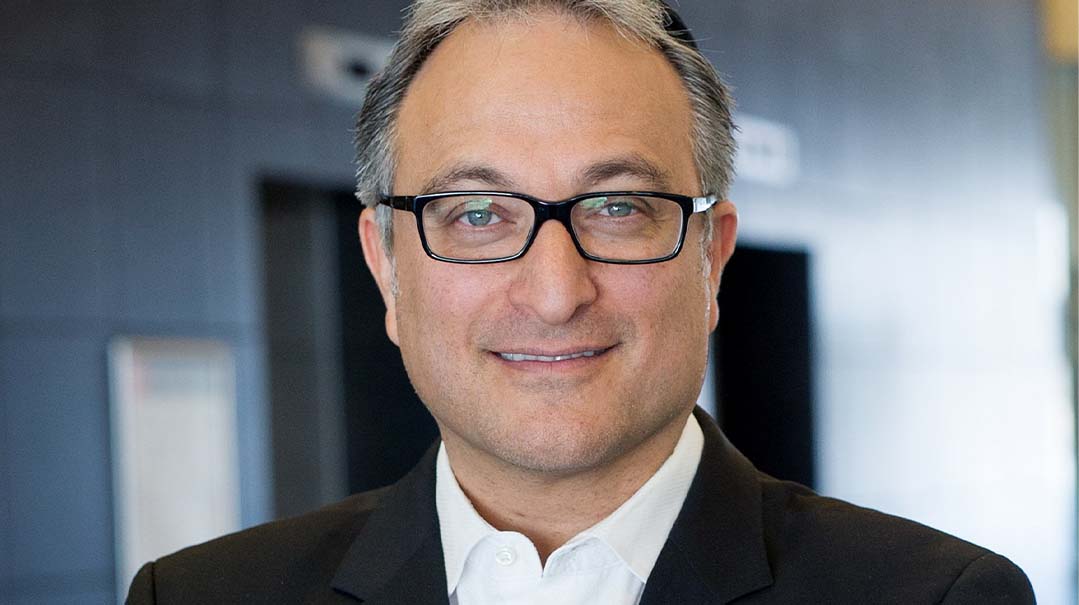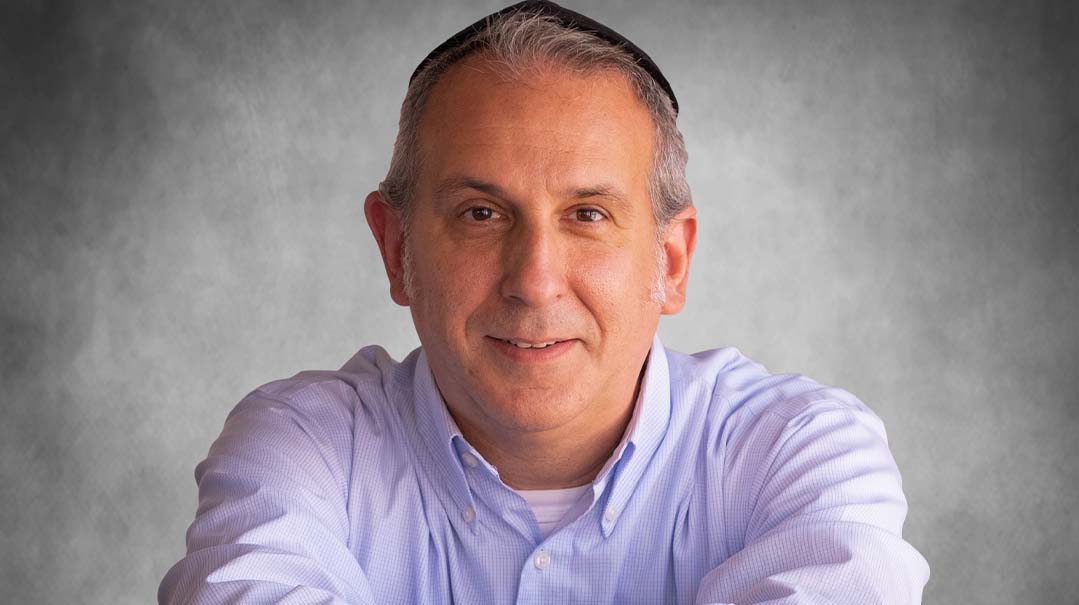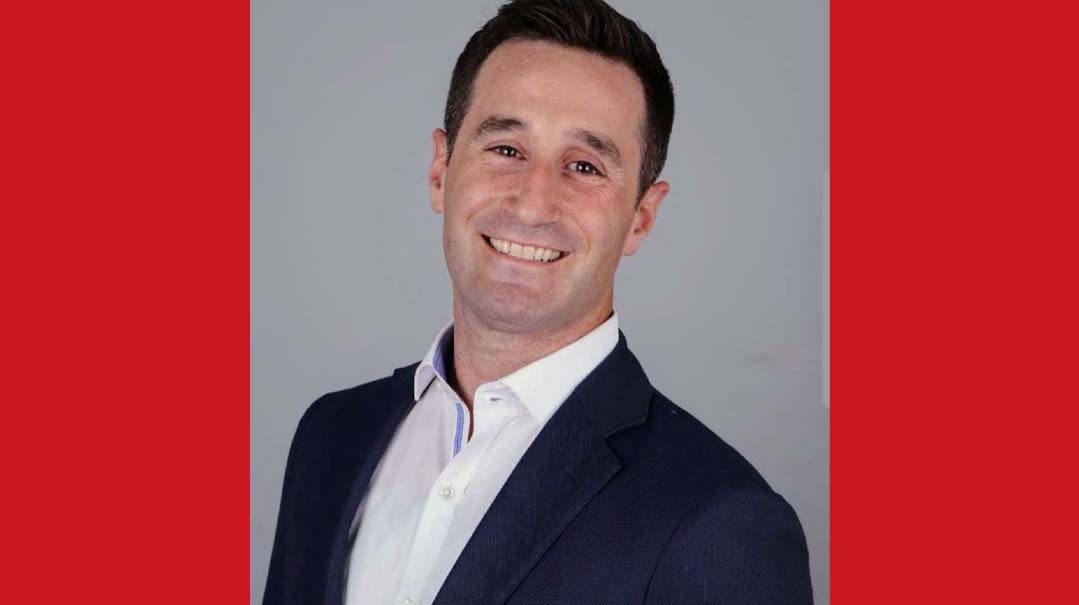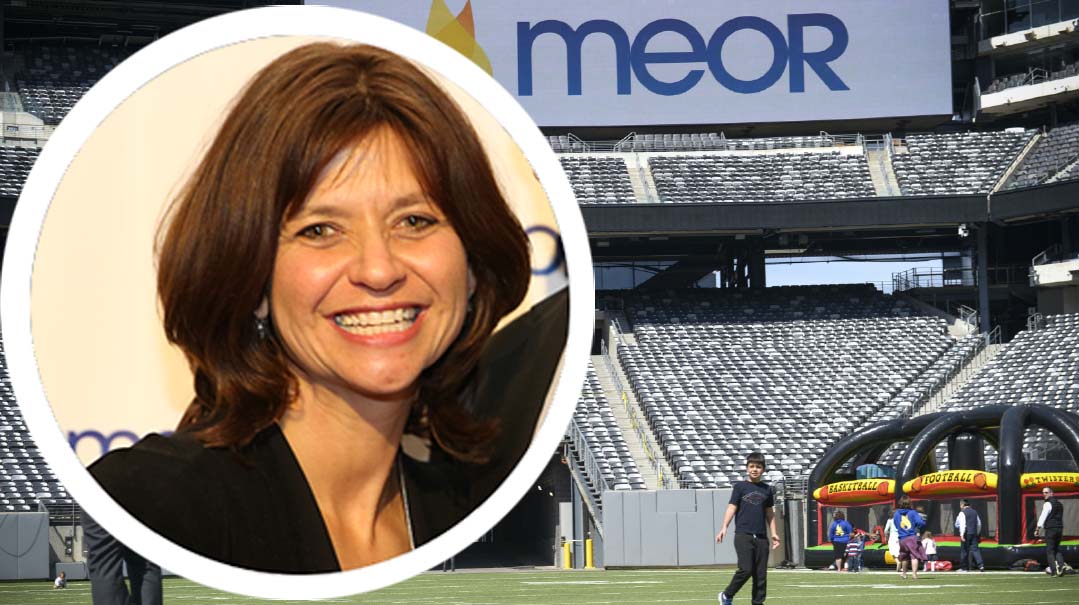Work/Life Solutions with Avital Eusgeld

"Honest feedback is how you learn, pivot, and grow, and without it it’s really hard to create a successful company in the long-term"
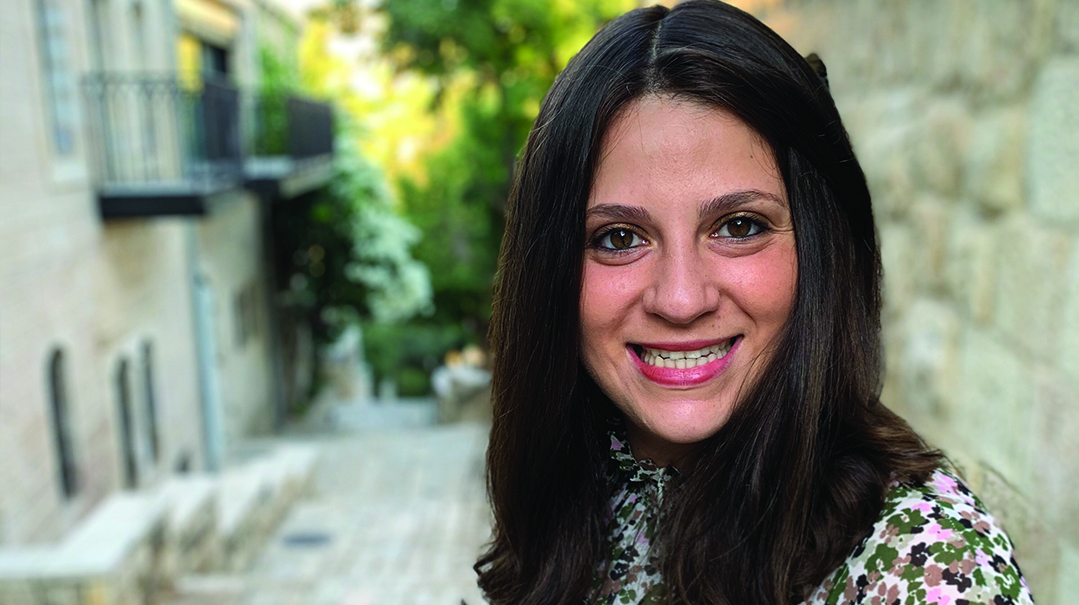
Who: Avital Eusgeld, founder and CEO at HiPitched
What: Early on in her career, Avital worked as an international liaison for the Israeli Embassy’s Trade and Economic Division in London, assisting Israeli companies and start-ups in developing their business strategy, raising capital, and securing international clients and partners. After making aliyah in 2016, she was involved in the venture-capital and start-up industry, and two years later founded HiPitched, a boutique agency that focuses on strategic thinking and design, creating brands and products so that their clients can be “a voice above the noise.” So far, the firm has worked with 25 clients in a variety of sectors and locations, including Singapore, London, the US, and Israel.
Where: Avital was raised in the Edgware neighborhood in London, and earned a BA in political science and international relations from the University of Birmingham. She’s worked in London, Washington, New York, and Tel Aviv, and now resides in Jerusalem with her husband, Rachmiel, a qualified lawyer who currently learns full-time at the Mir yeshivah.
Why: It’s always impressive when someone can achieve so much professionally, yet still remains passionate about making a meaningful difference in the Jewish world. At the young age of 27, Avital has already worked with leading investment firms and start-ups, but still devotes much of her time to teaching and mentoring young, frum women about the workplace. Since moving to Israel, she’s taught classes at various seminaries and kiruv programs on female leadership and morality in the workplace, and she’s been active in facilitating and encouraging women getting high-tech positions in Israel. At the end of her lectures, she always sends the young women a document of the articles, videos, and podcasts that have personally helped her to grow in Judaism.
1 of 9 What opportunities or personalities played a role in your career?
When I was 18, I was elected to be president of one of the biggest Jewish college societies in the UK. I was managing a 20-person committee, all of whom came from very different Jewish backgrounds and had very different ideas of what the role of a Jewish society on campus should be. During this time, I also established and oversaw the running of the first Jewish Society winter ski trip to the French Alps. The regular university ski trip traveled by bus during Shabbos and I didn’t want Orthodox students to miss out on the skiing experience. The position also involved speaking on numerous student panels across the country, on a multitude of topics, and cooking and hosting Friday night dinners for over 100 people (sometimes very important people, like Chief Rabbi Mirvis) each week.
I would say that aside from learning how to cook for a huge number of people the experience taught me three core lessons. The first is the importance of listening to your predecessors. I made a real effort to reach out to Jewish Society presidents before me, to hear about their experience and understand what they would have done differently if they were to redo their year. This gave me a head start going into the role.
The second is the importance of genuine care, or realizing that people have needs and are not commodities. At every committee meeting, I made sure that there would be a hot cooked meal (food is very important to students). I also made a real effort to speak with each member of every committee at least twice a month, in order to find out how things were going, both in terms of their role and in their personal lives.
The third is how to delegate. Each person on the committee had a role they were elected to do, be it events, cooking for Friday night, Israel campaigns, and so on. I realized very quickly that if I tried to control each person’s role, thinking I knew how to do a better job, the team would lose momentum, resentment would form, and I’d be unable to actually focus on the role I was elected to do — leading and coaching the team.
2 of 9 Which three character traits have played a key role in your career path?
Accountability. Leadership involves being accountable to the public. It’s great to be the face of success, but there will also be a lot of failures and you’ll be the face of that too. If you make a mistake (which you will!), be proactive in admitting it and fixing it. Be prepared to apologize, and never make a promise you can’t keep. The second type of accountability is even more important — accountability to yourself. This involves being able to look in the mirror with the knowledge that you have handled each and every situation in a way in that you can be proud of, with grace and dignity.
Ambition. I believe that a desire to actually finish something you set out to do is a strong factor when it comes to success, but it’s also a trait I can’t really take much credit for. I come from a long line of ambitious women. When my grandmother met my grandfather 70 years ago, she was training to be a barrister, something that was incredibly rare in those days. They went on to have three very impressive daughters, one of whom is my mother, one of the first female stock brokers on the London Stock Exchange. I then married a man whose mother holds a PhD in reliability engineering and has more master’s degrees then I can keep track of.
Curiosity. I’ve always consumed a huge amount of content, be it in books, magazines, and podcasts. Every time I read or hear about a person or company who sounds interesting, I look into their profile, sign up to their newsletter, and try and learn as much about them as possible. This trait has also helped me in growing a network. At networking events, I prefer to meet a few people and understand a lot about them, rather than trying to work the room and learn a little about a lot of people.
And now, I’ll have a little chutzpah and include a fourth trait. There was a little old Jewish lady who sold pretzels on a street corner for 25 agurot each. Every day a young man would leave his office building at lunch time, and as he passed the pretzel stand, he’d leave her 25 agurot, but never took a pretzel. They never exchanged a word. This went on for over three years. One day, as the young man passed the stand and left his 25 agurot as usual, the pretzel lady finally spoke to him.
“Sir,” she said, “I appreciate your business. You’re a good customer, but I have to tell you that the pretzel price has gone up to 35 agurot.”
Essentially, when it comes to chutzpah, you need two opposites: a sense of shame that prevents you from acting with chutzpah to do the wrong thing, and a sense of chutzpah that prevents you from being ashamed to do the right thing.
7 of 9 If you were asked to deliver a TED Talk watched by 50 million people, what topic would you choose to speak about? Why?
I would discuss how to strengthen inner character when building our careers. Back in 2015, New York Times columnist David Brooks wrote an article called “The Moral Bucket List.” This article explored the idea of man’s two virtues — the résumé virtues and the eulogy ones. He described the résumé virtues as the skills one brings to the marketplace, while the eulogy virtues are the ones that are talked about at your funeral.
While we all know that in life it’s our eulogy virtues that are more important than our résumé ones, today we live in a culture where often this is easy to forget — our career success is frequently put at the expense of other aspects of our life, family, friends, and charity work.
On a personal level, I’m lucky enough to have grown up in a household where this balancing act was constantly made visible and perhaps, more importantly, actually viable. On the résumé virtue side, my mother was one of the first women to enter the city’s stock exchange and my father was a doctor who owned his practice from a very young age. Anywhere I went, where people knew my mother, the first comment was always: “Wow, we don’t know how she does it.” It took me a very long time to realize that it wasn’t exactly normal to walk in three hours before Shabbos and somehow manage to cook enough food for the entire family for two meals. But yet somehow the comments about my father made me smile even more: “Wow, your father, he really lets your mother fly.” My mother always said that he never clipped her wings and was always her biggest supporter, and this was something I really looked for — and thankfully found — when choosing my own marriage partner.
Still, it’s the work they do outside of their official careers that most impresses me: the charity committees they sit on, the traveling they do, the time they dedicate to each of their children and grandchildren, not to mention the time given to their never-ending list of friends. They are so much more than a stockbroker and a doctor. And more importantly, if you asked them how they would define themselves, their jobs would probably be an afterthought.
But so often this isn’t the case — we seem to be much clearer on how to build an external career than on how to build inner character. Ultimately, though, if we were forced to question what mattered most if our time were cut short, would we still act in the same way?
8 of 9 Can you share a time when you had to navigate the tension between your deepest values and the business world?
From the time I attended seminary, I knew I wanted to teach young women a course on work/life balance, morality in the workplace, and lessons learned from female figures in Tanach. But I also knew I wanted to work in business. I wanted to feel that it was possible to be a player in both worlds and that I didn’t have to choose one over the other. However, I didn’t know of many companies who would be willing to hire someone four days a week, so they could teach in the remaining time.
In the beginning of my career, I lived in London and worked full-time at the Israeli Embassy in London. Here I was responsible for introducing world-class Israeli tech start-ups (Cyber Security, Fintech, and Mobile) to the UK’s business and investment community. I was also advising and assisting Israeli companies and start-ups in developing their business strategy, raising capital, and securing clients and partners internationally.
But when I moved to Israel, I wanted to be in a business role that also allowed more flexibility for teaching Torah. I began getting job offers for venture-capital firms and leading tech companies across the country, but they all wanted a full-time employee. And so I realized that if I truly wanted to combine my two passions, I needed a job where I could manage my own time — and that meant starting my own company. This personal realization coincided with a gap I saw in the business market in Israel. Israelis were great at coming up with ideas, but not always so good at explaining them. I thought, What if you could go somewhere to have your strategy, storytelling, and design done in one place? I created HiPitched in 2018 to do just that. I felt I had nothing to lose in trying.
At the same time as founding my company, I found my way into teaching at Midreshet Rachel, through a close friend who was in charge of the JInternship program there. Word then got around to other seminaries and female groups visiting Israel, and in the past three years I’ve taught over 600 college-aged women, from countries such as London, Australia, and the US. There is no question they haven’t thrown my way, from “When you were dating, were boys not intimidated by you?” to “If you have so much freedom in your role as a woman in the workplace, don’t you feel restricted when it comes to your role in Judaism?” The girls truly keep me on my toes and there’s nothing that makes me happier than when a girl comes to me at the end of the class and asks to go for coffee to discuss things in more detail — something I always try and say yes to.
I never set out to be an entrepreneur or company founder, but in the end, it didn’t feel like I had a choice. And it was that exact lack of choice that forced me into one of the best decisions I ever made.
9 of 9 What do’s and don’ts would you share with someone hoping to launch a career as an entrepreneur?
Surround yourself with a culture of honest feedback. When I was in my last few years of school, I started to think about college and quite liked the idea of Oxford University. Through some contacts, I managed to arrange a meeting with one of the heads of admissions. I walked into the meeting, and the person proceeded to ask me about my life and why I wanted to go to Oxford. After I finished my answer, she took one look at me and simply said, “This is not the university for you,” and there the meeting finished. I had never been more humiliated in all my life, and spent many weeks replaying this episode in my head. But after a while, I realized that if nothing else, she had been honest, and if I could learn one thing from the meeting, it would be the importance of honest feedback — although delivering it with kindness goes a long way.
When running a company, it’s relatively easy to surround yourself with people who will pat you on the back and say “great job.” But if you really want to succeed, you need people who aren’t afraid to also do the opposite. Honest feedback is how you learn, pivot, and grow, and without it it’s really hard to create a successful company in the long-term.
Always say thank you. In the business world, a written thank you goes a long way. When someone has made the time for coffee with you, when a customer gives you feedback, when someone goes out of their way to do an introduction for you, always remember the thanks.
If you want others to respect you, you need to respect yourself. I am female, under 30, and identifiably religious in how I dress and how I decline to shake hands with men. When I go to visit clients in Tel Aviv, I’m sure they’re shocked. They wonder how I can interact with them and how I have the outside knowledge to advise them. When I serve on a panel or participate in a podcast, I get reactions like, “I didn’t expect you to look like that.” But if you respect yourself, others respect you. If you know what to say no to, it’s easier to know what you can say yes to.
(Originally featured in Mishpacha, Issue 845)
Oops! We could not locate your form.









